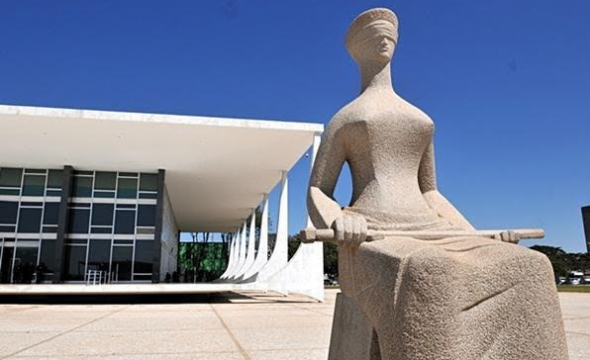RIO DE JANEIRO, BRAZIL – The landmark decision, on November 7th, by Brazil’s Supreme Court (STF), holding by a slim 6 – 5 margin that persons convicted of crimes cannot be forced to serve their sentences until all their appeals have been exhausted, has caused a political uproar.
More importantly, it is about to create a serious institutional and constitutional crisis in Brazil.

Brazil’s 1988 Federal Constitution, Article 5, guarantees to all citizens and resident foreigners “the inviolability of the right to life, to liberty, to equality, to safety and to property” and then itemizes, in Roman numerals, some 78 specific rights, such as due process of law, adversarial proceedings and the inadmissibility of illicitly obtained evidence.
Our topic today, however, involves another fundamental Article 5 right, that which embodies the presumption of innocence:
“LVII – no one shall be considered guilty until a condemnatory criminal judgment has become final.”
Additionally, Article 60 of the Constitution, dealing with the manner of amending it, has apparently “entrenched” the rights of Article V, as it provides:
“§4 – [Congress] shall not deliberate any proposed Amendment tending to abolish: … IV – individual rights and guarantees.”
Consider, for a moment, the drastic consequences implicit in this clause. It means that the STF can declare “unconstitutional” a constitutional amendment, duly approved and promulgated by Congress, if it finds that such amendment “tends to abolish” an individual right—such as, for instance, the presumption of innocence.
There is a large majority in both houses of Brazil’s Congress that disapprove of yesterday’s STF decision, on the grounds that it allows convicted criminals, particularly those who are well-connected, well-off and well-lawyered, to remain at liberty until their convictions are final.
This is anathema to those favoring speedy justice, who know that: (a) Brazil’s criminal procedure code allows dozens of dilatory motions and appeals; (b) Brazil’s appellate courts are swamped with cases; and (c) the statute of limitations runs during all these appeals.
The combination of these three factors too often results in impunity.
In too many cases, criminals convicted of corruption, particularly those of an advanced age, will never have to spend any time in jail, and will walk free while their appeals gather dust in court files.
The concern is most immediate in relation to corruption cases, as the STF decision is seen as imperiling Lava-Jato investigations.
The constitutional crisis could well come sooner, rather than later.
Congress is now considering a proposed constitutional amendment (PEC) that would overturn the STF decision by allowing the “provisional enforcement” of sentences for defendants whose convictions have been affirmed by an appellate court.
Congressional leaders have not yet set up a timetable for deliberations on the PEC, as they awaited the outcome of the STF case. They will probably do so soon, as the voters they represent will bay for action.
Those who defend the presumption of innocence until final judgement, foreseeing this development, have already begun marshalling their arguments that the “provisional enforcement” PEC is unconstitutional. In their view, it “tends to abolish” the presumption of innocence, thus violating Article 60 §4 of the Constitution.
It is likely that someone will soon file a lawsuit at the STF, seeking to bar any deliberations by Congress on the PEC, based on Art. 60 §4. It is even possible that a rogue STF Justice (Gilmar? Lewandoski?) will grant a temporary injunction staying any Congress proceedings, until the lawsuit can be judged by the full STF.
Any such decision would definitely ignite the fuse needed to set off the political powder keg underlying the Legislative and Judicial Branches of Brazil’s government, with regrettable consequences for both.

